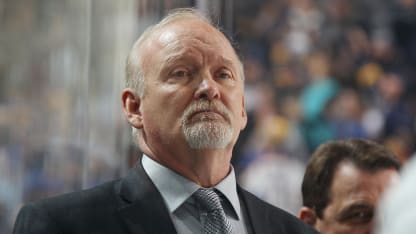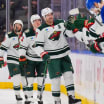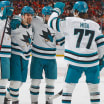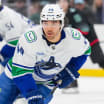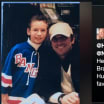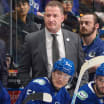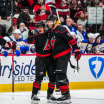"I think the evolution of lines has really changed because I don't know if, when we're playing an opponent, I ever get to see the same lines. I don't know if night to night last year with the Rangers that we ever had the same lines. I think there's a philosophy now that you find pairs ... two guys that go well together and there's always a third guy that kind of rotates in and out. In Dallas, I found pairs of guys that played well together. On some nights, if you needed a more physical player with your skill players, you put that guy in. If you need a checker or a really good two-way centerman against the top line, you did some flipping and flopping to adjust to what you're playing and how the players are going. Sometimes you'll find a line that may play together for a month, sometimes two guys will play together for almost a whole year. But there's not a lot of lines in the League that stay together for a whole year where you have groups of three. When you start thinking about lines, you obviously think this will work or that will work but as soon as you get to training camp and start playing some games, you find out that there's pieces that will fit together. That's usually where you make a lot of decisions."
